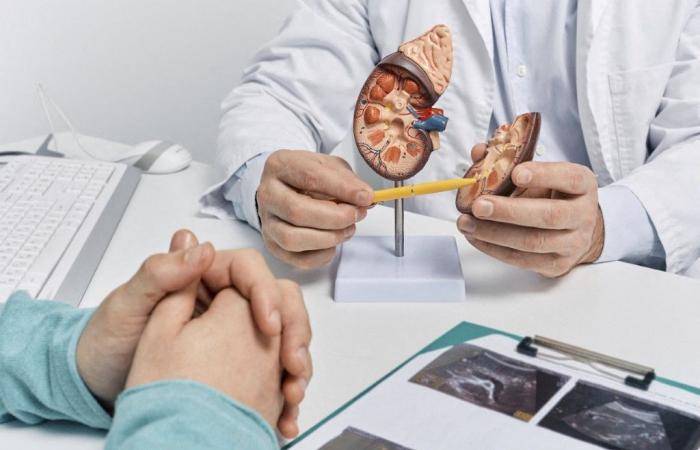
Urology is a medical specialty that focuses on the diagnosis, treatment and management of diseases and disorders of the urinary tract in men and women, as well as the male reproductive system.
Urology is therefore involved in the detection and treatment of prostate cancer, a major cause supported by Movember. To discuss it, we met Doctor Jean-François Wilmart, specialist in urology at CHL.
A complete and varied specialty
During his training, Doctor Wilmart was attracted by the global aspect of the specialty which includesègre le diagnostic, le bilan and complete patient caret.
Indeed, a urologist usually carries out ultrasound scans, diagnostic endoscopies, neuro-urological assessments and is able to use various surgical techniques such as’endoscopy, surgery conventional, laparoscopy and robotic surgery.
The urologist is therefore both a doctoran andrologist, an infectious disease specialist, an oncologist and a surgeon…
Prevention and early diagnosis
Prostate cancer is often referred to as “silent” at first. Early symptoms may include urinary problems, such as’increased frequency of urination.
These symptoms should alert men, as they may indicate problemsAndmy prostate health. Patients sometimes tend to minimize these signs, but in these conditions it is advisable to discuss them with their general practitioner or to consult a urologist.
Prostate cancer screening
Prostate cancer screening is generally recommended starting at age 50except for populations at genetic risk, which should beginand 40 has 45 years old. The dandtracking is not really justified for men whose life expectancy is less than 10 years.
Screening options include PSA testing (Prostatic Specific Antigen)rectal examination, an endorectal ultrasound and possibly an MRI which will justify the performance of a biopsy (sampling of prostate tissue for microscopic analysis).
Encourage dialogue and screening
Men are often hesitant to consult for questions related to their male health due to social and cultural stereotypes. In general, men find it difficult to talk about these kinds of problems. but thanks in part to media coverage, this situation is currently changing.
Society exerts social pressure on men, preventing them from speaking openly about their problems.Andmy urogenitals: doctors must therefore go to patients to put them at ease’comfortable and encourage dialogue.
Movember and awareness
Movember is a global movement that raises awareness about male cancers, including prostate cancer. This movement uses social networks and media to inform and encourage screening. It also helps promote men’s mental health, a crucial aspect in the care of prostate cancer patients.
The psychological dimension of this pathology is often underestimated in this disease and its therapeutic process which can be long.
Advances in treatment
The latestAndprogress in the morningAndre treatment of prostate cancer include improvements in the’hormonothsecond-line therapy and in combined hormonal therapy and chemotherapy protocols.
The radiorapie a also evolved with new methods of‘pre irradiationcises. We must mention the appearance of radiopharmaceutical treatments used to treat patients with progressive, castration-resistant prostate cancer., which has spread to other parts of the body (metastases) and which may have already been price a charge with other treatments for this disease.
Treatments are increasingly personalized, adapted to each patient according to their condition, age and quality of life.
The use of artificial intelligence
L’artificial intelligence begins to emergewas very usefuled in radiological diagnosis but thedecking must remain the decision-maker of this therapeutic process within multidisciplinary groups as part of a holistic (global) therapeutic approach.
L’urology is a specializationcialvast and essential medical field in the fight against prostate cancer. Raising awareness and media coverage are crucial steps to improve patient care.





